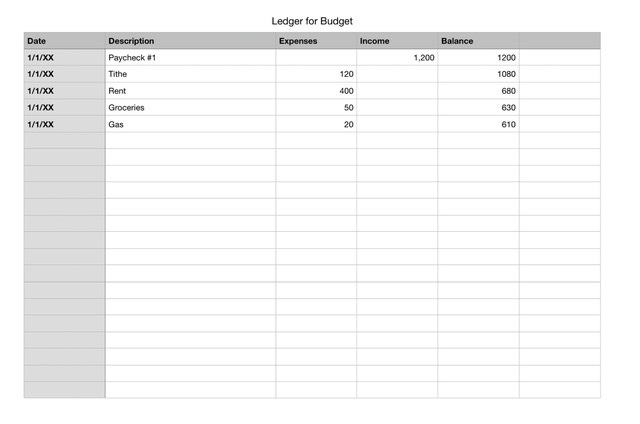Advice for Keeping the Sabbath
Some Practical Things
I have written before about why Christians should keep Sunday as a holy day.
But I haven’t written on how to keep it. It is known what people should not do on Sunday, but not what to do instead.
This is to help jumpstart ideas, not be an encapsulation of it all. Over time, this post will have additions and edits to give you helpful tips in keeping the best day of the week.
If you love the Lord’s Day, here are three practical tips and thoughts outside of attending public worship (that should be a given) I hope you find helpful.
Preparation
The best outcomes in life are the result of preparation. Much of the keeping of the Sabbath does not lie in the day itself, but in the week preceding. To hold this day in high regard you must use the other six wisely. If all other days are out of order, how do you expect to keep this one in order?
The keeping of the Sabbath is a result of well-ordered affections. Are your affections in order? Are you disciplined in habits? Are you disciplined with money, food, entertainment, duties, time management? Without discipline in these areas one could hardly expect a pious attitude for the Lord’s Day. For the keeping of the Lord’s Day flows from a love for it in the preceding week, the motions in the midst of the Day do not create love for it.
Money
To keep in step with the apostle Paul, in laying aside something on the first day of each week (1 Corinthians 16:2), you must have your finances in order. You are to give the first fruits, the first of your gross income.
To better help with this, I recommend from personal use and my accounting background, that you keep a ledger for your monthly budget.
A ledger has three columns, from left to right: Expenses, Income, Balance.
For starters, your monthly budget should start on the first day you get paid within a calendar month, not the first day of that month. For example, if it is July and you are paid on the 3rd, you begin your budget on the 3rd and it will end the day before the first time you are paid in the next month.
Begin when you have cash, not in anticipation of it.
Just as in the example above, the first entry in your ledger is your paycheck. Then, immediately, list each bill that you will have between the first time you are paid and the next, even though the bills have not been paid out of your account yet.
This practice shows you how much money you actually have at any given time. You are not left guessing. If you receive $1,000 and you owe $800, then you really only have $200.
This the first order of business.
For more resources and articles on money, I recommend checking out
on this topic, whose advice on buttons and a table of contents helped me tremendously with The Daily Odyssey. As retiree, he has opinions and wisdom in this area. Check it out here!Groceries
One problem you may encounter on Sunday is a lack of food, or the preparation of it.
It may become tempting to say that this is a moment of necessity, so you may be excused to go to the store or a restaurant on Sunday. This is only poor planning.
On Saturdays, I check our pantry to see if we have enough food for us to eat and be satisfied through Sunday. If not, we will go out and get just enough.
Where we are the tap water is poor, to say the least, and our refrigerator does not have a filter, so we have to think about how many water bottles we have going into Sunday.
Under groceries I think about medicine. In recent weeks this has been something that has shown weakness in my preparation for the Sabbath. On Saturday, check to see if you have enough medicine to take care of an overnight cold or the onset of the flu.
For the preparation of meals on Sunday, use a crockpot. You don’t want the Lord’s Day to be overly laborious. You want your heart and mind to delight in the Lord. Prepare the night before, leaving it in the crockpot on low heat or off completely, depending on the meal. Then in the morning you just have to turn a few knobs and presses a couple of buttons.
Here is an ongoing collection of recipes that I am gathering from older generations. Check it out!
Recipes [IN PROGRESS]
Traditions and Culture are passed on the easiest through recipes. Here is a collection of recipes given to me that are from a few generations back. They are in alphabetical order. Main Dishes Vegetables Desserts
Company
One of the best helps and hinderances to keeping the Sabbath is company. My welding teacher in high school echoed Biblical wisdom when he said, “You become like those who you are around.” Plan to spend the Sabbath with those who love the Lord and seek to keep His Day.
Earlier in the week, begin inviting people over for Sunday lunch. Think of their piety and agreeableness. Spend the Lord’s Day with the Lord’s people.
Invite those who live alone for their own good. Proverbs 18:1 says, “Whoever isolates himself seeks his own desire; he breaks out against all sound judgement.”
Do not forget: “Better is a dinner of herbs where love is than a fattened ox and hatred with it” (Proverbs 15:17).
It is easier to control a conversation when you are hosting. You initiate and lead the conversations because it is your house. Through conversation you can steer around certain topics that distract from the Lord’s Day and lead into more fruitful ones.
Music
To fill the atmosphere with Sunday appropriate music, here is a playlist from The Book of Psalms for Worship.
To reiterate, these are brief and un-exhaustive thoughts. More are to come and you will be notified in future posts when it is updated.
If you have some advice you would like to see added, feel to do so by leaving a comment!
For now, there is little that a well-planned gathering of people and food can’t assist in.





Thanks for the mention. I enjoy the varied topics you write about.
The issue of restaurants has always been an interesting one. Assuming that the people who staff the restaurant are either unbelievers or Jews, to what extent is it 'rest' to attend a restaurant? If you visit someone else's house, you are profiting from their work (setting the table, at the very least) etc.